
When people think of the golden age of comedy movies, they often reference the Marx Brothers’ 1930s or Bill Murray’s 1980s. Some critics relish in assigning reductive, patronising labels: “you couldn’t make a film like that any more,” “it was of its time,” “that was back when movies were still good,” “the industry was different then,” etc. These stock quotes come across as uneducated and narrow-minded. They’re deployed when journalists are too lazy to spend the time to comprehend a piece’s worth. Such flippant remarks have ruined the reputations of many excellent films that audiences would otherwise love, if they hadn’t been turned against them.
Although there are movies that do feel of their time, by and large, the quality of a piece is not dependent on the era in which it was made. Instead, this is attributable to the creativity, passion and hard work of those who made it. There have been brilliant movies produced in every single decade since cinema was born, regardless of what was transpiring in the world. To say that high calibre films could only be made in a specific decade is to say delicious bread could only be baked in the 1870s and all bread since then has been inedible.
The late-‘90s through the 2000s are perceived as the most-recent belle époque of comedy films. That said, the 2010s also boasts its own hefty share of list-topping gems. Most comedy fans are familiar with the popular titles of this decade: Hot Tub Time Machine or Adam Sandler’s Happy Madison productions. However, there are a multitude of other 2010s comedies that remain surprisingly overlooked, in need of the audiences they deserve. Some of the best comedies of all-time were released in that decade, but so many of them have been unjustly dismissed.
1. Our Idiot Brother (Jesse Peretz, 2011)
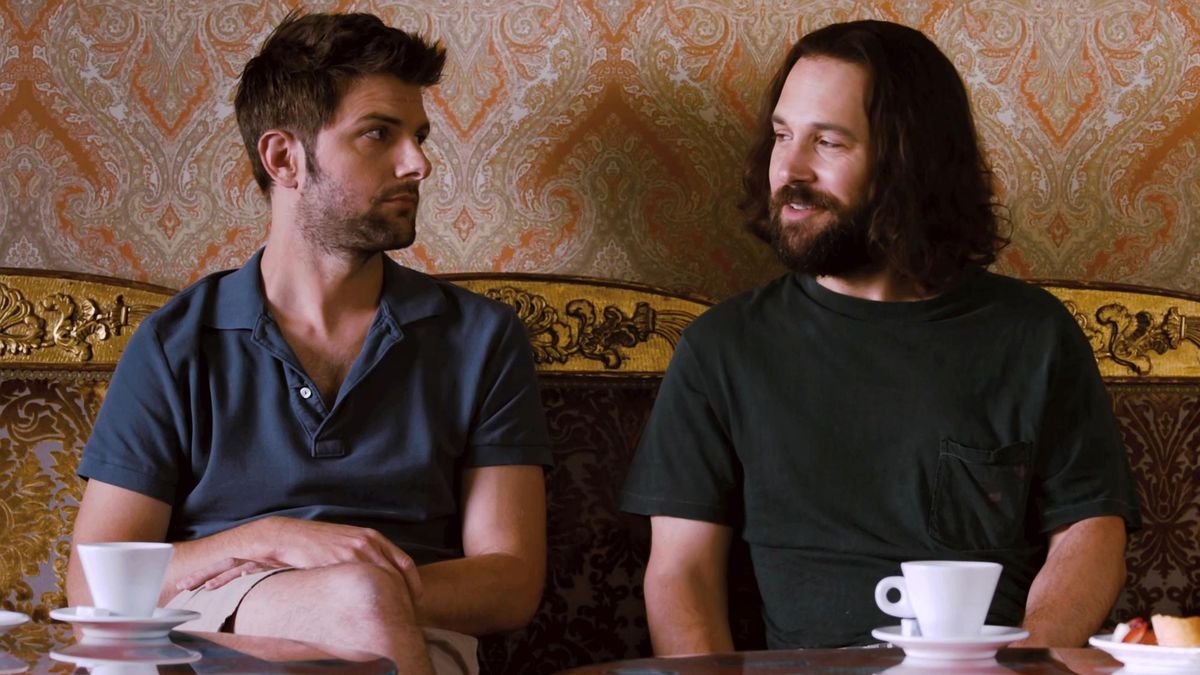
Ned Rochlin (Paul Rudd), an adorable hippie, is coaxed into selling cannabis to a uniformed police officer. Following his release from the penitentiary, Ned discovers that his girlfriend, Janet (Kathryn Hahn), has a new boyfriend (T.J. Miller) and she is evicting Ned from his own farm. Janet prevents Ned from seeing his best friend, a dog named Willie Nelson, ever again. Whilst couch-surfing between his three sisters’ (Elizabeth Banks, Emily Mortimer, Zooey Deschanel) New York City homes, Ned sets out on a quest to get his dog back. Simultaneously, his propensity for blabbing other people’s secrets sparks an emotional upheaval within his family.The film’s realistic story is a comedy of the purest Shakespearian definition: a misunderstanding leads to increasing worry and stress for the characters, before they collide at a revealing climax.
What makes Ned hilarious is, despite his lovely intentions, his innocent, trusting nature results in disaster wherever he goes. When he drops his coffee on the subway, he hands a stranger a thick wad of cash to hold while he picks it up. No other actor could have endowed Ned with the same humanity as comedy legend Paul Rudd. Ned may be his finest and most meaningful role. Aside from the expert work by Rashida Jones, Adam Scott, Steve Coogan and This Is Us’s Sterling K. Brown, a particular acting highlight comes from the late Shirley Knight as Ned’s mother. She always brings a glass of wine with her when she tucks Ned into bed.
In similarity to the Dude in The Big Lebowski, Ned is a paradoxically inspirational character, echoing Zen Buddhist philosophy. Despite his many adversities, Ned stays empty of worry, as though enlightened. He is never cruel nor bitter, remaining cheery, friendly and generous to everyone he meets. Ned shows us that a person’s worth is not in their career, bank balance or appearance – it is in the depth of their kindness. Ned may be a freewheeling, unemployed bohemian, but he isn’t ashamed of it. He humbly accepts and appreciates himself for who he is, as he does others, without judgement. His focus is on love and enjoying life.
The message of this film is one of unity, of putting aside ego, prejudices and past squabbles to improve relationships. The title Our Idiot Brother is an ironic one, as Ned is ultimately the least idiotic character in the film. Ned is a role-model who demonstrates how to treat others with kindness and understanding. How to “give people the benefit of the doubt” and see them “rise to the occasion.” Ned is someone to aspire to be. Our Idiot Brother is a charming film with laughs to spare, which will give comfort and inspiration to those struggling to get ahead. It is as sweet and funny as it is wise and medicinal.
2. The Watch (Akiva Schaffer, 2012)
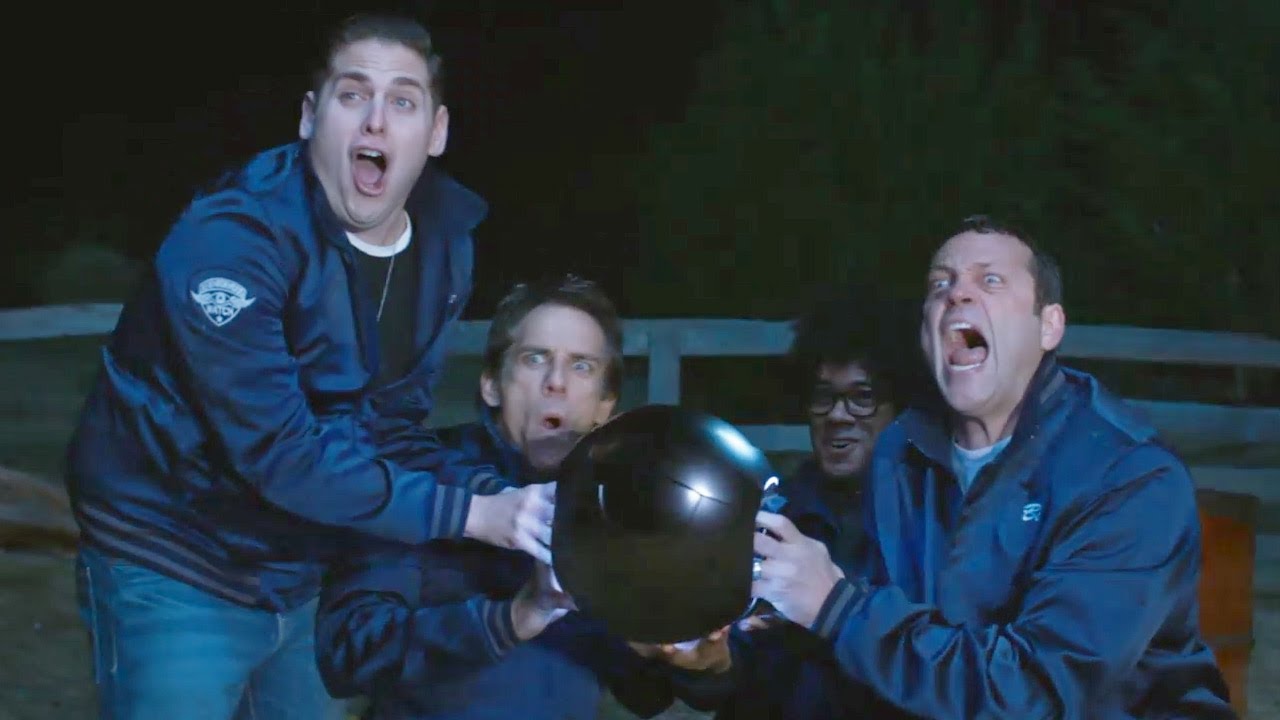
This sci-fi buddy comedy was written by Seth Rogen and Evan Goldberg – the minds behind Superbad and Pineapple Express. Evan Trautwig (Ben Stiller) manages a Costco store in the suburban idyll of Glenview, Ohio. Arriving at work one day, he learns of the death of his friend and colleague Antonio Guzman (Joe Nunez). With the aim of bringing Antonio’s killer to justice, Evan forms a neighbourhood watch: a wise-cracking, misfit brigade consisting of Bob, Franklin and Jamarcus (Vince Vaughn, Jonah Hill, Richard Ayoade), who only enlist for the craic and the beers. However, their investigation soon leads them to an alien who has invaded the town.
As with his finest, most energetic comedy work in Wedding Crashers, Vince Vaughn is at the top of his game in The Watch, boasting many of the film’s funniest, most quotable lines. When he discovers his daughter is dating, he rants: “Who’s your toy boy? What’s his Toy Story?” Likewise, Jonah Hill is also at his funniest, rivalling his work in The Wolf of Wall Street: “Look at my words and listen to his face.” Much of The Watch’s comedy is the banter exchanged between the colourful characters, as well as their foolhardy handling of the alien invasion. The film’s funniest moment comes when the watch pose for selfies with the alien they think is dead, adorn it with sunglasses, a cigar and a sombrero, before slow dancing with it.
Ben Stiller, under-revered for his ability to synthesise the necessities of the ‘straight man’ role with subtle behavioural humour, provides the heart of the film. Aside from the core theme of friendship, The Watch is about Evan being unable to tell his wife Abby (Rosemary DeWitt) that he’s been diagnosed as sterile, his sadness and feelings of failure. When the couple begin to engage in a dialogue about the subject, the film’s worth is revealed. It contains a moral about the importance of communication and honesty in relationships and how to be understanding of other people’s issues.
Upon its release, The Watch was received with unfair indifference. However, if you’re a fan of the Frat Pack and Apatow Mafia comedy teams, this is an essential laugh riot, combining the best of both schools. It also delivers a captivating, action-packed popcorn plot to quench buffs of relatable sci-fi and mystery. It is a film deserving of reappraisal, for being a chapter of Seth Rogen and the Frat Pack’s funniest work.
3. Dark Shadows (Tim Burton, 2012)
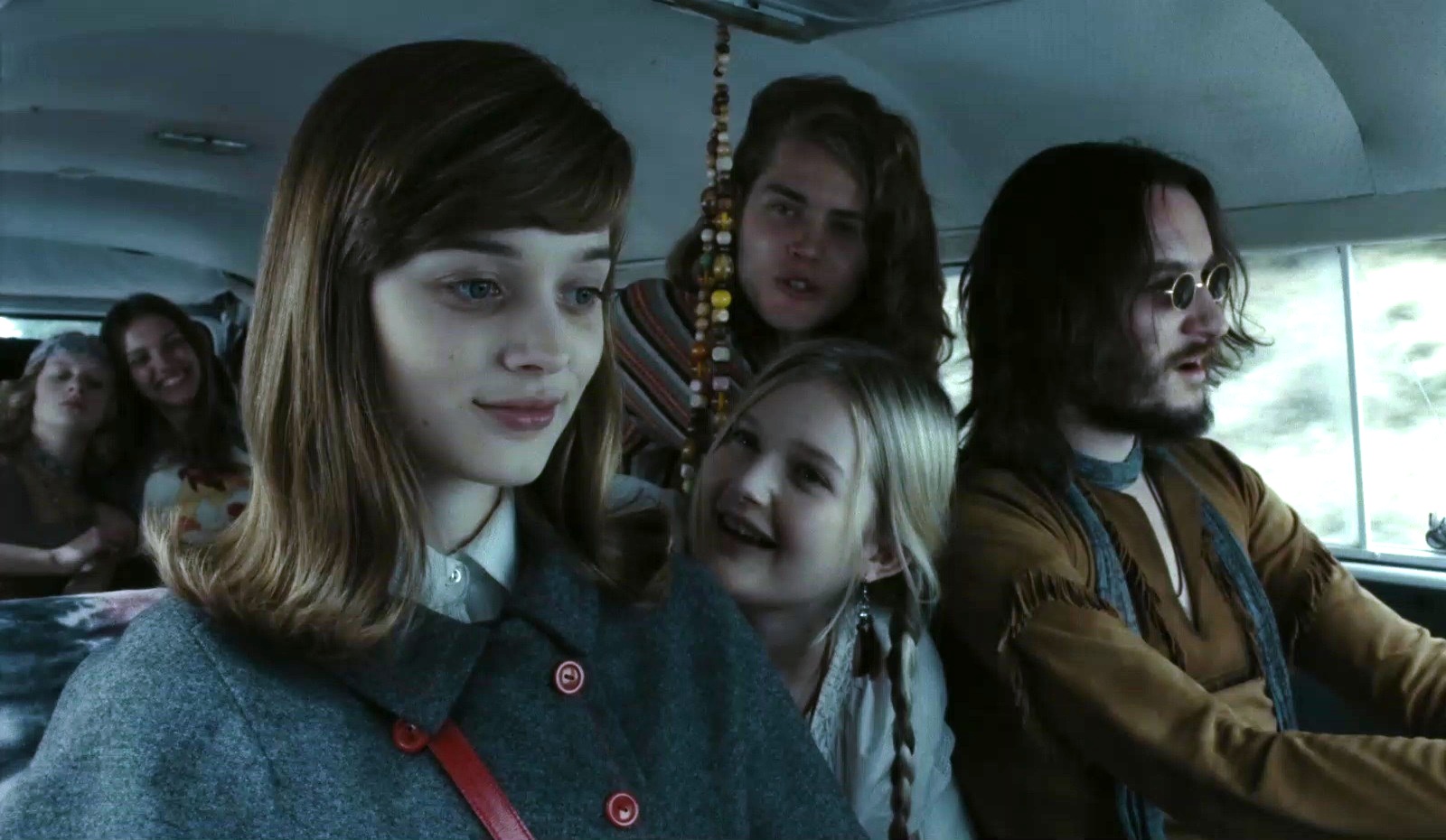
Dark Shadows is based on the late-‘60s, early-‘70s TV serial of the same name and sees Tim Burton’s gothic-comedy vision in full-bloom. In Maine, 1972, an 18th century English vampire named Barnabas Collins (Johnny Depp) is unearthed after enduring two centuries entombed inside a coffin. He returns to his family mansion, where he meets his descendants (Michelle Pfeiffer, Chloë Grace Moretz, Johnny Lee Miller). Barnabas attempts to reinvigorate the family fishing business, in hope of restoring the Collinses to their former prosperity. Soon, the immortal witch who cursed him with vampirism, Angie (Eva Green), resumes her vendetta-charged mission to destroy Barnabas and everyone he loves.
Johnny Depp is an actor who has not been recognised as the comedy genius he is. He punches at the same weight as any of the iconoclastic maestros, from Groucho Marx to Leslie Nielsen. In the past, he’s been miscast in overly-serious roles, which feel contrary to his personality and skillset. However, when Depp lets his comic instincts flow with characters like Jack Sparrow or Barnabas Collins, the results are consistently hilarious.
Aside from Tim Burton’s hyperbolic production design, the comedy of Dark Shadows lurks in screenwriter Seth Grahame-Smith’s dialogue, brought to life by Johnny Depp’s side-splitting delivery. An 18th century vampire discovering the 1970s serves as the ultimate fish out of water comedy. Barnabas fills the film with his outdated observations of the modern world, in a stream of endlessly quotable, laugh-out-loud lines. For instance, he asks his relative Carolyn (Chloë Grace Moretz): “what is your age, if I may?” “Fifteen,” Carolyn replies. “Fifteen and no husband?!”
Like Johnny Depp, Dark Shadows has been overlooked as a comedy masterpiece. What is more, with its milky, Hammer-esque cinematography and cauldron of werewolves, witches and vampires, it is certified to delight horror fans. If the film’s remit is to make audiences laugh, Barnabas Collins achieves this tenfold. It is one of the funniest comedies of the 2010s.
4. Are You Here (Matthew Weiner, 2013)
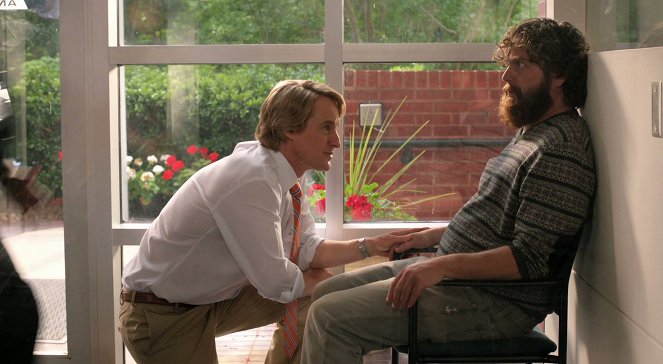
This film stars comedy heavyweights Owen Wilson and Zach Galifianakis as best friends Steve Dallas and Ben Baker. Steve is a promiscuous, easygoing weatherman. Ben is unemployed and struggles with the depression induced by his bipolar disorder. When Ben’s father dies, the friends road trip to Ben’s family home in Amish country, Pennsylvania. Whilst his sister, Terry (Amy Poehler), fights him over the inheritance, Ben stays at the family farm, in the care of Steve and Ben’s attractive young stepmother Angela (Laura Ramsey). As Ben’s mental health worsens, he wages an erratic ideological crusade against capitalism.
In addition to the entertaining performances you’d expect from Wilson, Galifianakis and Poehler (including a ‘crawfish in a car trunk’ highlight), Are You Here is notable because it contains a message of sociological depth. Ben represents the radical left, viewing capitalism and industry as evils – destroying the environment and enslaving people’s minds. He remains perpetually under attack from society for his revolutionary opinions, mental health issues and slacker lifestyle. His sister Terry represents the right wing, due to her love of money and desire to expand her late father’s business empire. Steve signifies a liberal, seeing the qualities in both perspectives, yet feels conflicted over his allegiance.
The film contrasts the west’s capitalism with the alternative lifestyles of the Amish and the hippies, to ask the questions: are those with different perspectives and lifestyles to the norm incorrect? Who is ‘normal?’ Should we all conform to popular ideas, or should we make our own paths? What is the ideal way for us all to live? Contemplating his life choices, Ben looks at an Amish horse and buggy clopping down the street. He then peers over at a mechanical toy horse for children to ride, chugging in simulacra of a real horse.
It may not be as good as Wilson, Galifianakis and Poehler’s best work, but Are You Here’s abysmal rating on Rotten Tomatoes is both unfair and wildly inaccurate for an entertaining comedy with something this meaningful to say.
5. Dead Snow 2: Red vs. Dead (Tommy Wirkola, 2014)
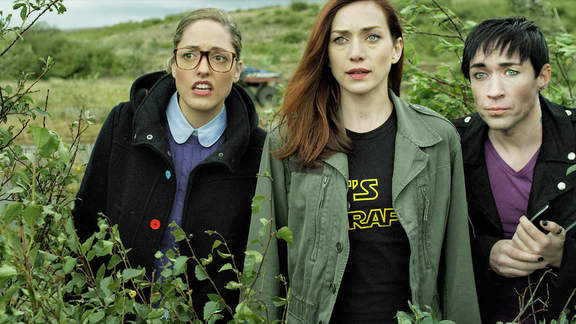
In the first instalment of Dead Snow, in classical slasher fashion, a gaggle of young adults sojourn to a remote cabin in the snowy fjords of Norway. Inside, they come upon a chest of Nazi gold. Naturally, an army of Nazi zombies rise from the snow and bombard the cabin.
In Dead Snow 2, the Nazi zombies are marching for the village of Talvik. During the Second World War, Hitler tasked them with destroying Talvik and all its inhabitants. Martin Hykkerud (Vegar Hoel), the protagonist from the first film, resurrects a regiment of Soviet zombies to defeat them. In a playground, an epic zombie battle ensues.
An improvement on its predecessor, Dead Snow 2, next to Cockneys vs. Zombies is one of the finest zombie comedies. The star of this film is the dry Norwegian humour, typified by the scene-stealing Christian Rubeck as the clueless policeman. Horror movie tropes are subverted with the humorous mundanity of everyday life. The zombie’s have an absurd contrast with the folksy, cutesy, perpetually good-natured rural Norwegians.
Like Robert Rodriguez, director Tommy Wirkola has the surprising skill for making his scenes gory yet comedic at the same time. His satire is savage: a wheelchair user is abandoned by her carer to be disembowelled by Nazi zombies, while her carer flees. The film is brimming with moments like this, where audiences are torn between gasping, screaming or laughing at the nerve of the script. Every scene in the movie is imbued with highly-inventive creative details. This originality revitalises a genre that has been largely stagnant since George Romero mastered it. The film’s pace of action is matched by the frequency of its jokes.
Through this project, Wirkola put himself forward as a leading contemporary director of horror-comedies. More recently, he’s received the international exposure he deserves, in his novel Netflix thriller The Trip and 2022’s Santa Claus slasher Violent Night. Dead Snow 2 is guaranteed to supply raucous, blood-spattered, zombie-driven laughs, if that’s something you’d enjoy.